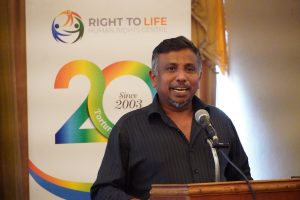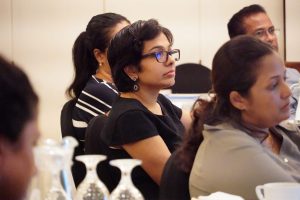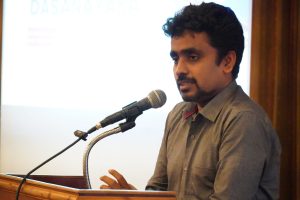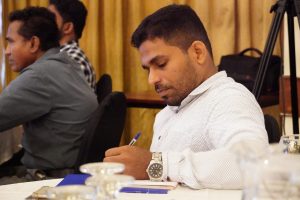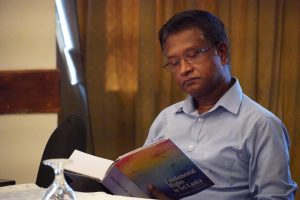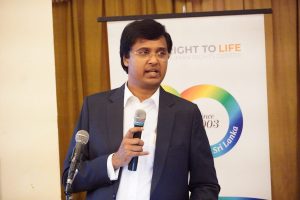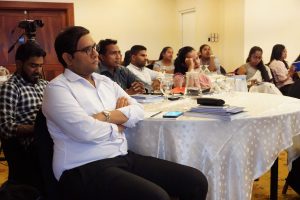 The “Essential Skills for Young Lawyers” workshop, organized by Right to Life, successfully concluded today ( 2nd November) at Hotel Janaki in Narahenpita. The event, attended by aspiring legal practitioners, featured expert-led sessions focused on the foundations of criminal defense, writ jurisdiction, fundamental rights actions, and the critical role of public interest litigation (PIL) in Sri Lanka.
The “Essential Skills for Young Lawyers” workshop, organized by Right to Life, successfully concluded today ( 2nd November) at Hotel Janaki in Narahenpita. The event, attended by aspiring legal practitioners, featured expert-led sessions focused on the foundations of criminal defense, writ jurisdiction, fundamental rights actions, and the critical role of public interest litigation (PIL) in Sri Lanka.
Notable speakers included President’s Counsel Upali Mohotti, and Attorneys-at-Law Rajeev Amarasooriya and Lakshan Dias. In a detailed presentation, Mr. Lakshan Dias highlighted the importance of fundamental rights, their scope, and their application in Sri Lanka, providing young lawyers with a comprehensive understanding of the constitutional protections available to citizens.
Mr. Dias began by discussing fundamental rights as enshrined in the Sri Lankan Constitution, which guarantee protections to individuals, ensuring they live with dignity and fairness. He emphasized key articles such as Article 10 (freedom of thought and religion), Article 11 (protection from torture), Article 12 (equality before the law), and Articles 13 and 14, which safeguard against arbitrary detention and ensure freedoms of speech, assembly, and association. Dias also underscored the accessibility of the Supreme Court by enabling citizens to file cases in Sinhala or Tamil, promoting fairness and inclusivity in the judicial process.
In his address, Mr. Dias underscored the importance of Public Interest Litigation (PIL) as an avenue for safeguarding community rights and environmental welfare. By citing landmark cases such as the Eppawala Phosphate Mining Case, where the Supreme Court ruled in favor of local communities’ right to a healthy environment, and the Galle Face Green Case, which prevented commercial development in a beloved public space, Mr. Dias illustrated how PIL can drive impactful legal precedents that protect public interests.
The discussion also included practical guidance for young lawyers on filing Fundamental Rights (FR) applications in the Supreme Court. Mr. Dias detailed the exceptions to the 30-day filing limit, which include cases of continuous rights violations, detentions, or complaints filed with the Human Rights Commission of Sri Lanka (HRCSL). He further explained the procedural requirements, such as the need for five copies of the FR application—one for the Attorney General, one for the Registrar, and three for the judges presiding over the case.
Mr. Dias highlighted the significant precedent set by the Sriyani Silva vs. Iddamalgoda case, where a family member was permitted to file an FR petition on behalf of a deceased individual, establishing that immediate relatives could seek justice if the victim is no longer able to do so.
The event concluded with a call to action for young lawyers to engage in Public Interest Litigation as an essential tool for protecting individual rights and addressing broader societal issues. The workshop empowered participants to apply legal skills that champion fundamental rights and enhance access to justice, setting the stage for a new generation of legal professionals committed to upholding the rights of the people.
